MercoPress. South Atlantic News Agency
Tag: recession
-
Saturday, September 1st 2018 - 09:27 UTC
S&P places Argentina credit ratings under review
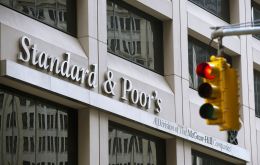
S&P said on Friday it may lower Argentina's long-term foreign currency rating from its current B+ grade, which is four notches below investment grade -- and on par with Turkey, Greece and Fiji. The ratings company cited the risk of worsening creditworthiness and exchange rate volatility as potential threats to the economic adjustment measures undertaken by Mauricio Macri’s administration.
-
Wednesday, August 29th 2018 - 08:33 UTC
Brazilian currency down on presidential election forecast jitters
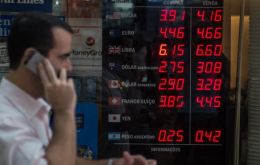
The Brazilian Real led losses in Latin America as lingering concerns over presidential elections overshadowed a largely positive environment for emerging market assets. The US dollar ended trading at 4.333 Reales.
-
Wednesday, August 22nd 2018 - 08:40 UTC
Brazil's Real plunges past four to the US dollar, first time since March 2016
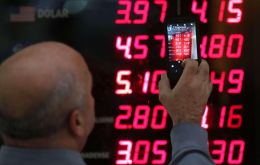
Most emerging market currencies worldwide rallied on Tuesday after U.S. President Donald Trump criticized the head of the Federal Reserve for raising interest rates, while Brazil's Real fell to its lowest in more than two years on political concerns.
-
Monday, June 4th 2018 - 08:13 UTC
Brazilian manufacturing activity slows down for second month in May
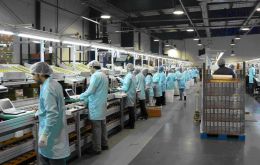
The growth of manufacturing activity in Brazil slowed for a second straight month in May, a private survey showed on Friday, a sign that a weaker currency and political uncertainty are taking a toll on Latin America's largest economy.
-
Thursday, May 17th 2018 - 09:22 UTC
Temer claims that in two years his administration has takes Brazil out of recession
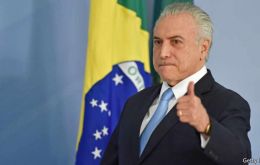
Brazilian President Michel Temer said this week that his administration has taken the country out of debt and successfully overcome the brutal economic recession of the past two years.
-
Wednesday, January 10th 2018 - 09:57 UTC
Great recession almost over, “but no time for complacency”, warns World Bank

The World Bank forecasts global economic growth to edge up to 3.1% in 2018 after a much stronger-than-expected 2017, as the recovery in investment, manufacturing, and trade continues, and as commodity-exporting developing economies benefit from firming commodity prices.
-
Wednesday, December 3rd 2014 - 08:06 UTC
Brazil posts in November its worst trade monthly result in 20 years

Brazil posted a 2.35 billion dollars trade deficit in November, the country's worst monthly result in 20 years, and cementing its slide into the red for the year after a decade of surpluses.
-
Wednesday, July 4th 2012 - 23:21 UTC
Argentine economy forecasted to enter recession in second half, but could still end 2012 positive

The odds that Argentina's economy will enter a recession in the second half of this year held above 95% for a second consecutive month in the closely followed monthly leading indicator published by Torcuato Di Tella University, UTDT.
-
Thursday, January 26th 2012 - 05:28 UTC
Fears UK economy might have entered a mild recession at the end of 2011
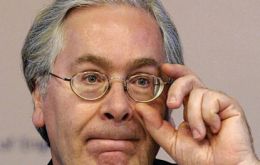
Britain's economy may have entered a mild recession in the last three months of 2011, hampering the government's core policy aim of spurring growth and raising the chances that the Bank of England will inject more cash soon.
-
Monday, September 5th 2011 - 01:57 UTC
In the US eight out of ten think the economy is in recession, shows CNN poll
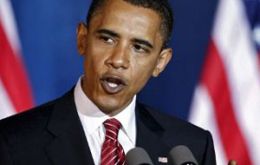
More than eight in 10 US residents think the economy is in another recession, according to a new CNN/ORC poll. One-third of those surveyed think it’s serious.
